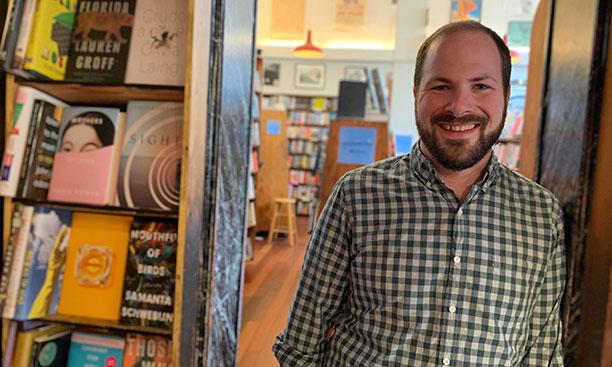
For Justin Cahill ’11, the managing editor of the new literary magazine American Chordata, the journey to the writing world was an unexpected one. Starting his freshman year on track to become a chemical engineer, Cahill switched to English after becoming immersed in a writing seminar on the works of Shakespeare.
“I was trying to maximize my English classes,” Cahill recalled. “After I switched, things became a lot more enjoyable.”
Following his decision to major in English, Cahill went on to pursue several literary opportunities during his college career, including an internship with the Princeton University Press and an assignment at a publishing house in Paris through the Princeton in France program. The Paris publisher he worked for, Éditions Tallandier, is known for its specific focus on history. Cahill, who now also works as a history editor for W.W. Norton, cites the experience as having directly shaped his career ambitions.
While Cahill began working at W.W. Norton in 2011, it wasn’t until 2014 that he, along with several colleagues, developed the idea of starting their own literary magazine. The decision, Cahill said, stemmed from a desire to breathe new life into a literary world filled with gatekeepers.
“We wanted to work on the type of writing we love to read, and also take more risks,” Cahill said. The first issue of American Chordata was published in the spring of 2015. Since then, the magazine has grown steadily in subscribers and submissions. The Winter 2019 edition was published earlier this month.
Cahill views the magazine as an opportunity to highlight up and coming writers who may be intimidated by more traditional outlets.
“Lit mags are kind of pretentious,” Cahill said. “No one accepts blind submissions, you need an agent, and writers wonder how they can get one.”
Cahill hopes American Chordata can serve as a gateway for writers to achieve more mainstream success. “[American Chordata] kind of gives writers that toehold into the literary world, which from the outside feels so imposing,” Cahill said. “For many of these writers, it’s the first time they’re seeing themselves in print.”
In addition to works of fiction, essays, and poetry, the magazine also accepts visual art submissions. Issues are made available both online and in physical form.
For Cahill, the role as managing editor of the magazine has been passion-driven. Employees of the magazine work as unpaid volunteers, and the steady stream of submissions requires reading hundreds of stories a month.
When asked if he has ever considered writing his own stories over the course of his career, Cahill said he views his role firmly as an editor and a source of guidance for hopeful authors. “I love helping someone realize their vision for a story or essay,” Cahill said. “I like to work behind the scenes to make that happen.”
